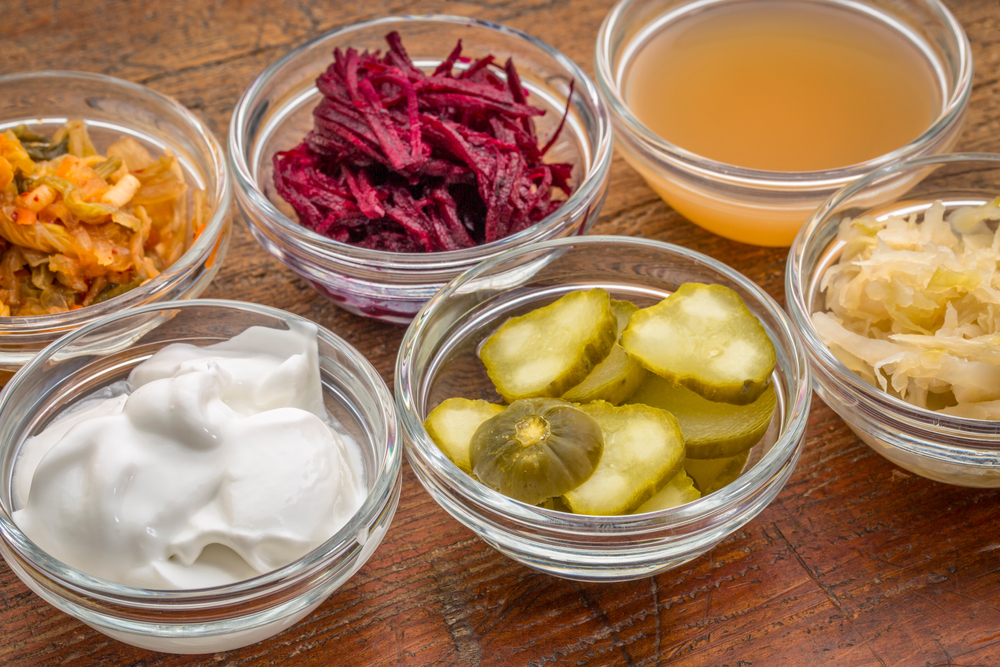Walk into any grocery store and you’ll find an entire aisle dedicated to fermented foods promising to revolutionize your gut health. Kombucha, kimchi, kefir, and cultured everything line the shelves with bold claims about probiotics and digestive wellness. But behind the marketing hype lies a more complicated reality about what these trendy foods actually deliver for your health.
The fermented food boom has transformed from a niche health movement into a multibillion-dollar industry, with major food companies rushing to capitalize on consumer interest in gut health. However, not all fermented foods are created equal, and many commercial versions bear little resemblance to the traditional fermented foods that built this trend’s reputation.
Commercial processing destroys beneficial bacteria
Most fermented foods in mainstream grocery stores undergo pasteurization or other processing methods that kill the live bacteria responsible for potential health benefits. That expensive jar of sauerkraut or bottle of kombucha might taste fermented, but the beneficial microorganisms are often long dead by the time you consume them.
Traditional fermentation relies on live cultures to transform ingredients and create beneficial compounds, but commercial food safety regulations often require heat treatment that eliminates these microbes. The result is fermented-flavored products that lack the active probiotics consumers are seeking.
Even products labeled as containing live cultures may have been stored or transported under conditions that significantly reduce bacterial viability. The probiotic count listed on packaging represents what was present at manufacturing, not what remains when you open the container weeks or months later.
Added sugars and preservatives undermine benefits
Many commercial fermented foods contain added sugars, artificial flavors, and preservatives that can actually harm your gut microbiome rather than support it. These additives are often necessary for mass production and shelf stability, but they counteract the potential benefits of fermentation.
Popular kombucha brands frequently contain as much sugar as soda, while flavored kefir products can have more added sweeteners than beneficial bacteria. The high sugar content feeds harmful bacteria in your gut, potentially negating any positive effects from the remaining live cultures.
Preservatives like sodium benzoate and potassium sorbate, commonly found in commercial fermented products, have antimicrobial properties that don’t discriminate between harmful pathogens and beneficial probiotics. These chemicals can continue affecting your gut bacteria long after consumption.
True fermentation requires specific conditions
Authentic fermentation is a slow, complex process that requires specific temperature, pH, and time conditions to develop beneficial compounds beyond just live bacteria. Many commercial products use shortcuts like adding probiotic cultures to already-processed foods rather than allowing true fermentation to occur.
Real fermented foods develop complex flavor profiles, beneficial enzymes, and bioactive compounds through extended fermentation periods that aren’t economically feasible for mass production. The depth of flavor and potential health benefits come from this slow transformation process that most commercial products skip.
Traditional fermentation also creates beneficial metabolites like short-chain fatty acids, vitamins, and organic acids that support gut health beyond just providing live bacteria. These compounds require weeks or months to develop naturally and can’t be replicated through quick commercial processes.
Research doesn’t support the hype for most people
While fermented foods can be part of a healthy diet, the dramatic health claims surrounding them often outpace the scientific evidence. Most probiotic research focuses on specific strains in controlled doses, not the variable bacterial populations found in commercial fermented foods.
The gut microbiome is incredibly complex and individualized, meaning that fermented foods that benefit one person might have neutral or even negative effects for another. Your existing gut bacteria, medications, stress levels, and overall diet all influence how your microbiome responds to fermented food consumption.
Many people report digestive discomfort when introducing fermented foods, especially in large quantities. This can include bloating, gas, and changes in bowel habits that may persist for weeks as your gut bacteria adjust to new inputs.
Focus on food quality over fermentation status
Rather than seeking out fermented foods specifically, focus on eating a diverse range of whole foods that naturally support gut health. Vegetables, fruits, legumes, and whole grains provide the fiber and nutrients that beneficial bacteria need to thrive, regardless of fermentation status.
If you want to try fermented foods, look for small-batch, refrigerated products with minimal ingredients and no added sugars or preservatives. These are more likely to contain live cultures and beneficial compounds than shelf-stable commercial versions.
Consider making your own fermented foods at home, where you can control the ingredients and fermentation process. Simple ferments like sauerkraut, pickles, or water kefir are relatively easy to make and more likely to provide genuine benefits than most store-bought alternatives.
Remember that a healthy gut microbiome depends more on your overall eating patterns, stress management, sleep quality, and lifestyle factors than on consuming specific fermented products. The fundamentals of good nutrition matter more than trendy superfoods.














